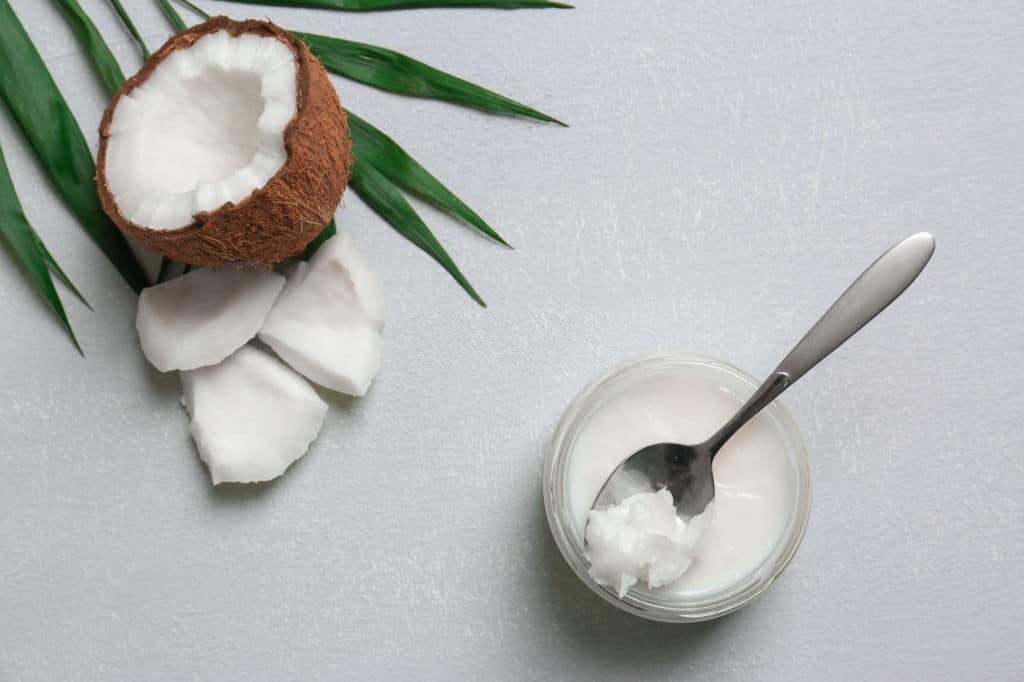
Acne is one of the most common skin condition which affects up to 80% of the world’s population within their lifetime. It’s totally normal and affects you during your teenage years, or even up to your adult stage. That’s why people turn to various remedies, including coconut oil.
However, one thing people have debated about is coconut oil’s effectivity, particularly when ingested. Does eating coconut oil cause acne or improve your skin? Read on to find out if your skin can benefit from it!
Does Eating Coconut Oil Cause Acne?
Many used to avoid coconut oil because of its saturated fat content, thinking that it can lead to high cholesterol and heart disease. However, recent research shows how the oils are healthy fatty acids which the body finds easier to burn, contributing health benefits with good cholesterol. Furthermore, they are great for both skin and hair!
Its natural antioxidants can penetrate and moisturize your skin, protecting it from environmental stress. The vitamins will also help moisturize, brighten, and firm your skin, supposedly clearing breakouts.

However, ingesting coconut oil is NOT for everyone. This goes particularly for those with oily skin. So for those who have an oily skin type, coconut oil may or may not be causing your acne breakouts.
Oily skin types would produce a lot of sebum, or skin oil. This can lead to shinier faces, thick and coarse texture, and runny makeup. It can also cause occasional breakouts.
While this skin type still needs moisture, it doesn’t need as much as normal or dry skin types.
When using coconut oil, it has the properties to cleanse your skin and even improve the clogged pores and oily skin because of its oil content finding balance. This reaps positive results in terms of acne, though there are some reports of people experiencing breakout from it.
Why Coconut Oil Can Be Causing Your Acne
Besides oily skin, there are other reasons why coconut oil might be causing acne. It can be due to an allergic reaction or sensitivity to the ingredient. This can cause breakouts and inflammation in parts of the body.
Furthermore, you may be using the WRONG type of coconut oil! It’s best to use fractionated coconut oil, which is a carrier oil mixed with other beneficial oils. While extra virgin coconut oil is a good choice, it’s too heavy if you have an oily skin type resulting in breakouts.
Learn more about the correlation between coconut oil and acne in this informative video:
How Coconut Oil Can Help With Acne
What about those who have dry or normal skin types? Again, this can be a hit or miss, since it depends on a variety of factors beyond skin types. However, most people and research report positive skin benefits from ingesting coconut oil, such as:
- The fatty acids from coconut oil can help kill bacteria which cause acne. This is because coconut oil contains Laurie acid, which helps to kill harmful bacteria and viruses in your body. It’s also known to kill P. Acnes, the main culprit of acne and breakouts!
- As mentioned, coconut oil provides excellent moisturizing properties, also helping in healing scarring and blemishes. It relieves dry skin and prevents scarring because of its anti-inflammatory benefits as well. Wounds heal quicker and it lessens the risk of acne scarring.
- Ingesting coconut oil can help fight off inflammation thanks to its antioxidants. This prevents acne caused by inflammation, as well as the redness and swelling of parts on your face. Take note that this still needs further studies on humans, though!
If you choose to ingest coconut oil to help fight off acne, it’s best that you only take two to six spoonfuls of it daily, either alone or mix it with food or drinks.
With all this in mind, it’s a make or break situation, where coconut oil is heaven-sent or can cause acne to worsen. For those with oily skin, it’s best to find other natural remedies.
I highly recommend that you consult your dermatologist before ingesting coconut oil to see if there’s a chance of acne worsening or improving.
Read more: Does Long Hair Cause Acne On Back?
Wrapping It Up
There are many studies on how coconut oil provides numerous health benefits, especially for the skin. However, there is little research about it in terms of fighting acne, and it really depends on your skin type and how it reacts to the natural ingredient. It will be a hit and miss, so it’s best to ingest only smaller amounts of it to see how your skin reacts to it.
I hope that my article answered the question, “does eating coconut oil cause acne?” Now that you know the answer, check if coconut oil is the appropriate remedy for your skin.

Hi Everyone, BeYoungAholic’s aim is to help women who have lost their self-confidence because of the way they look. We will provide you tips and bits of advice on how to take care of yourself and maintain your youthful look. So, Enjoy the blog!
